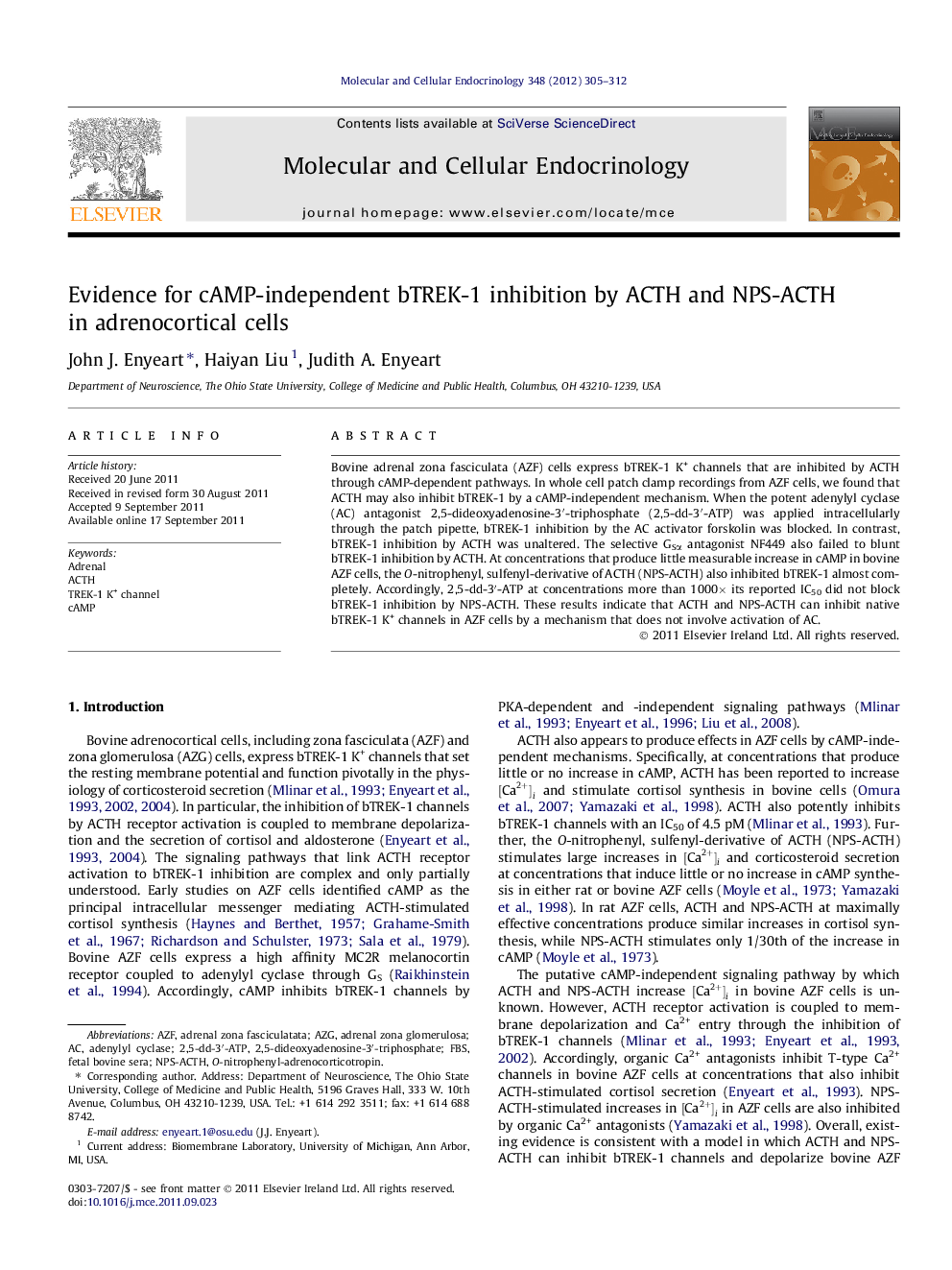| Article ID | Journal | Published Year | Pages | File Type |
|---|---|---|---|---|
| 2196527 | Molecular and Cellular Endocrinology | 2012 | 8 Pages |
Bovine adrenal zona fasciculata (AZF) cells express bTREK-1 K+ channels that are inhibited by ACTH through cAMP-dependent pathways. In whole cell patch clamp recordings from AZF cells, we found that ACTH may also inhibit bTREK-1 by a cAMP-independent mechanism. When the potent adenylyl cyclase (AC) antagonist 2,5-dideoxyadenosine-3′-triphosphate (2,5-dd-3′-ATP) was applied intracellularly through the patch pipette, bTREK-1 inhibition by the AC activator forskolin was blocked. In contrast, bTREK-1 inhibition by ACTH was unaltered. The selective GSα antagonist NF449 also failed to blunt bTREK-1 inhibition by ACTH. At concentrations that produce little measurable increase in cAMP in bovine AZF cells, the O-nitrophenyl, sulfenyl-derivative of ACTH (NPS-ACTH) also inhibited bTREK-1 almost completely. Accordingly, 2,5-dd-3′-ATP at concentrations more than 1000× its reported IC50 did not block bTREK-1 inhibition by NPS-ACTH. These results indicate that ACTH and NPS-ACTH can inhibit native bTREK-1 K+ channels in AZF cells by a mechanism that does not involve activation of AC.
► Inhibition of bTREK-1 channels by ACTH can occur by a cAMP-independent mechanism. ► The AC antagonist 2,5-dd-3′-ATP blocked bTREK-1 inhibition by forskolin. ► 2,5-dd-3′-ATP did not block bTREK-1 inhibition by ACTH or NPS-ACTH. ► The selective GSα antagonist NF449 does not blunt bTREK-1 inhibition by ACTH.
